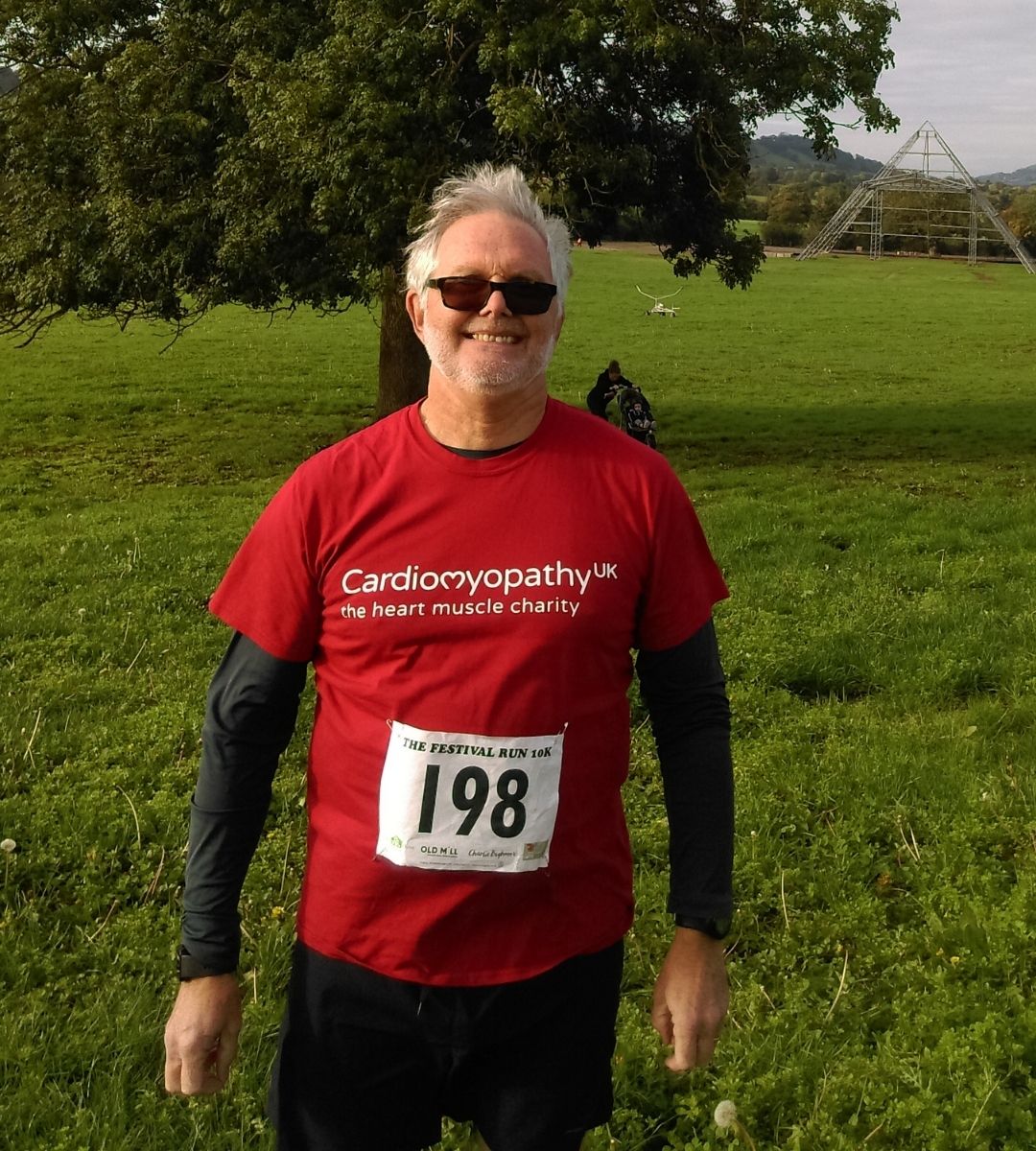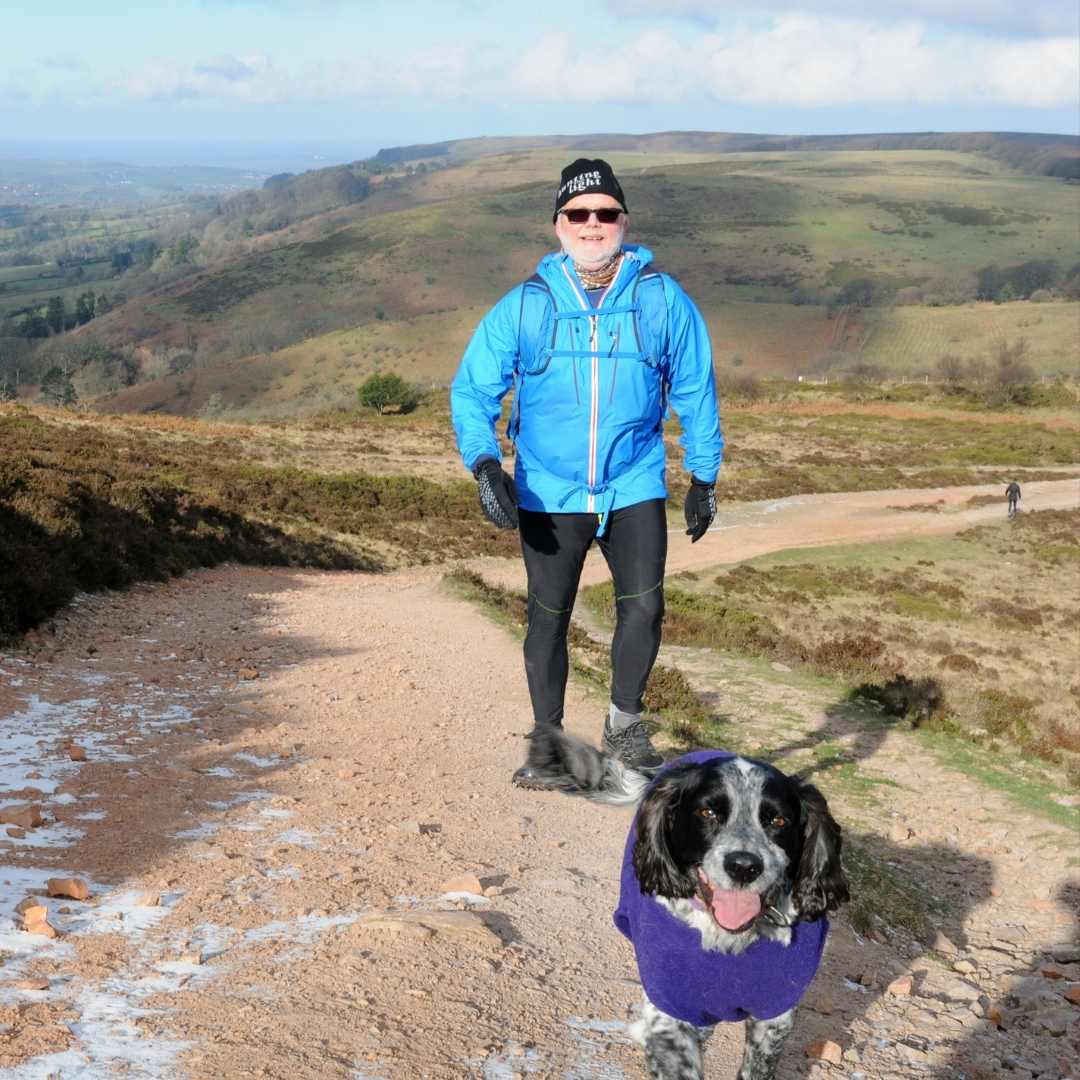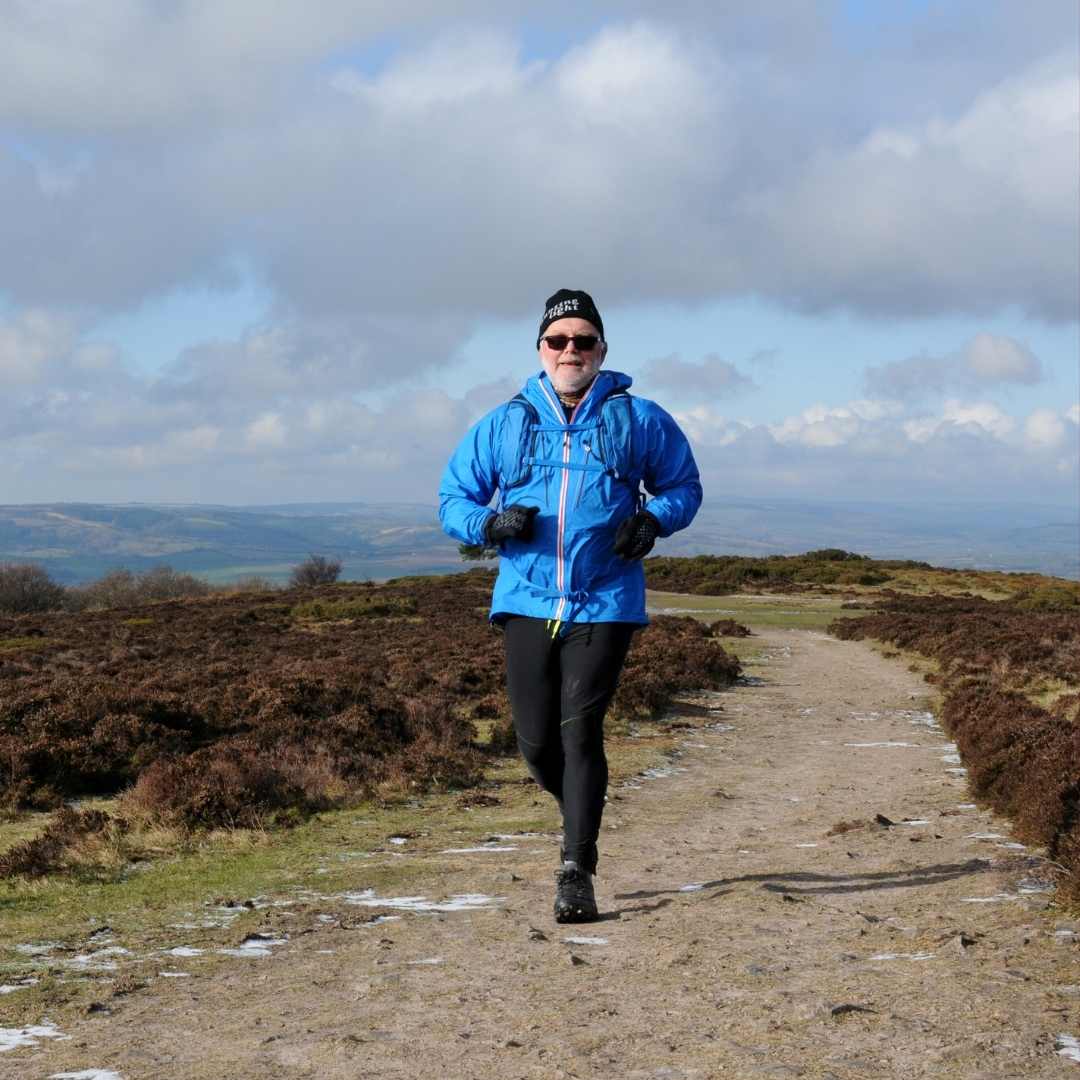We recently had the pleasure of catching up with Tony, one of our amazing Support Group Leaders. Tony was diagnosed with hypertrophic cardiomyopathy back in 2017. This is Tony’s story.
“In April 2017, I was diagnosed with hypertrophic cardiomyopathy and my life took a forced and somewhat irretrievable change in direction. I took a healthy lifestyle incredibly seriously and loved to stay active so being diagnosed with a life-changing condition was hard to hear."

The Signs and Symptoms
In retrospect, I did experience symptoms of cardiomyopathy, but I was not aware that I even had a medical condition and I had never heard of cardiomyopathy before my diagnosis. I had been a keen runner for many years, and I thought these symptoms were just signs of aging and a need to change my training patterns. I sometimes felt an irregular heartbeat when running, followed by lightheadedness afterward. I would sense a buzzing noise in my head, and on occasions, I found that my legs gave out on me, and I couldn’t run downhill.
I went to my GP after feeling dizzy whilst driving and there was an occasion when I fainted after having been in a hot tub. I have been told that if I hadn’t been a runner and noticed the sudden tiredness and irregularity within my running, I may never have been diagnosed.
I still get irregular heartbeats to this day and can on occasions feel light-headed. My most common symptom is atrial fibrillation, and I wear a heart rate monitor to enable me to manage my activities. I am currently reliant upon beta-blockers and blood thinners to manage my condition.
Getting a Diagnosis
The process of diagnosis took seven months. Looking back, it followed the normal range of tests. The worst part was waiting for the test results, which at times felt never-ending. There was also the anxiety of my family, who had seen some discouraging information on the internet and didn’t know whether this was a hereditary condition. For a time, I wasn’t able to exercise which proved difficult having been such an active person, fortunately, this was relaxed once the results were reviewed. My diagnosis was sped up by having a private consultation early in the process, which was invaluable for me in terms of understanding my diagnosis. My genetic testing was an extended process and, in the end, proved inconclusive. Still to this day, I do not know how I got the condition, though I suspect it could be viral.
I had mixed feelings once I received the diagnosis. On one hand, I was delighted to have had the various tests and have a diagnosis so I could look at the next steps. However, being early into my retirement, I was shaken that I could no longer do many of the things I had planned for the years to come. I also felt concerned as this is a hereditary condition, I felt very worried for my daughters and grandchildren.
After my Diagnosis
Before receiving my diagnosis, I imagined that somebody with a heart condition was generally not the very active person that I was. This made me fear for my longevity, I also have a hearing impairment and I didn’t like the idea of a second debilitating condition. I had met people with devices and knew that they could be extremely effective, so I expected to have an ICD as a matter of course.

At the time of my diagnosis, I had not long retired from full-time work, I had taken on some volunteering work, and I worked part-time as a fitness instructor at a nearby leisure centre. An Occupational Assessment was arranged at my place of work, as well as a visit to undertake a risk assessment to enable me to continue working. I also wasn’t allowed to use the Leisure Centre for personal exercise until I had a letter from my consultant giving me the go-ahead. I had ambitions to do long-distance off-road running and walking endurance events, something I planned on dedicating a lot of my newfound retirement time to. After my diagnosis, I had to retire my road bike and rethink my plans, I felt a strong sense of uncertainty and loss.
Living with Cardiomyopathy
When I was diagnosed, I didn’t know of anyone who had this condition. I felt very isolated and had no idea where to turn for help. Through my professional work, in community-based health and wellbeing services, I was sure there must be a support group somewhere, and my search led me to Cardiomyopathy UK. I contacted Cardiomyopathy UK, and when I heard there was not a support group in the Bristol area, but there were people looking to join, I put myself forwards to set up a group. This group has been a great source of support and knowledge for me, and I have been enriched by working with a group of such inspiring people. Nationally, I have been given opportunities to join online support groups, take part in national events, and extend my learning.
I continue to stay as active as I can with my condition. I still run but I go shorter distances and where possible I try to run with a friend. I have taken up Pilates and I am slowly getting back into going to the gym. I do have atrial fibrillation, and this can come on without notice even when I am inactive, which I know because of my heart rate monitor. I often walk rather than run when my heart rate is too high, but my cardiologists have been happy for me to continue exercising under the agreement that if my heart rate goes above 140bpm I have to slow down or stop. Thankfully, my Stress Test results have so far remained very good, though I am aware that I may need interventions in the future.
I have since come to terms with the condition and do consider it part of my own uniqueness. My experience is different from others with the same or similar conditions, but I do believe it has given me the opportunity to take my life in a different and unexpected direction. I also recently had an article published in the Trail Running Magazine, titled ‘Change of Heart’, describing the changes I had to make to my trail running following my diagnosis. I would be lying if I said I don’t miss some of the activities that I did before, and sometimes I do feel envy towards those who can continue. I now see it as part of my role to tell people about my condition and to help those who may have the symptoms but no diagnosis to get checked.

We hold a number of support groups each month both online and in-person. To join one of our support groups, email Christie, our Community Peer Support Manager at christie.jones@cardiomyopathy.org.